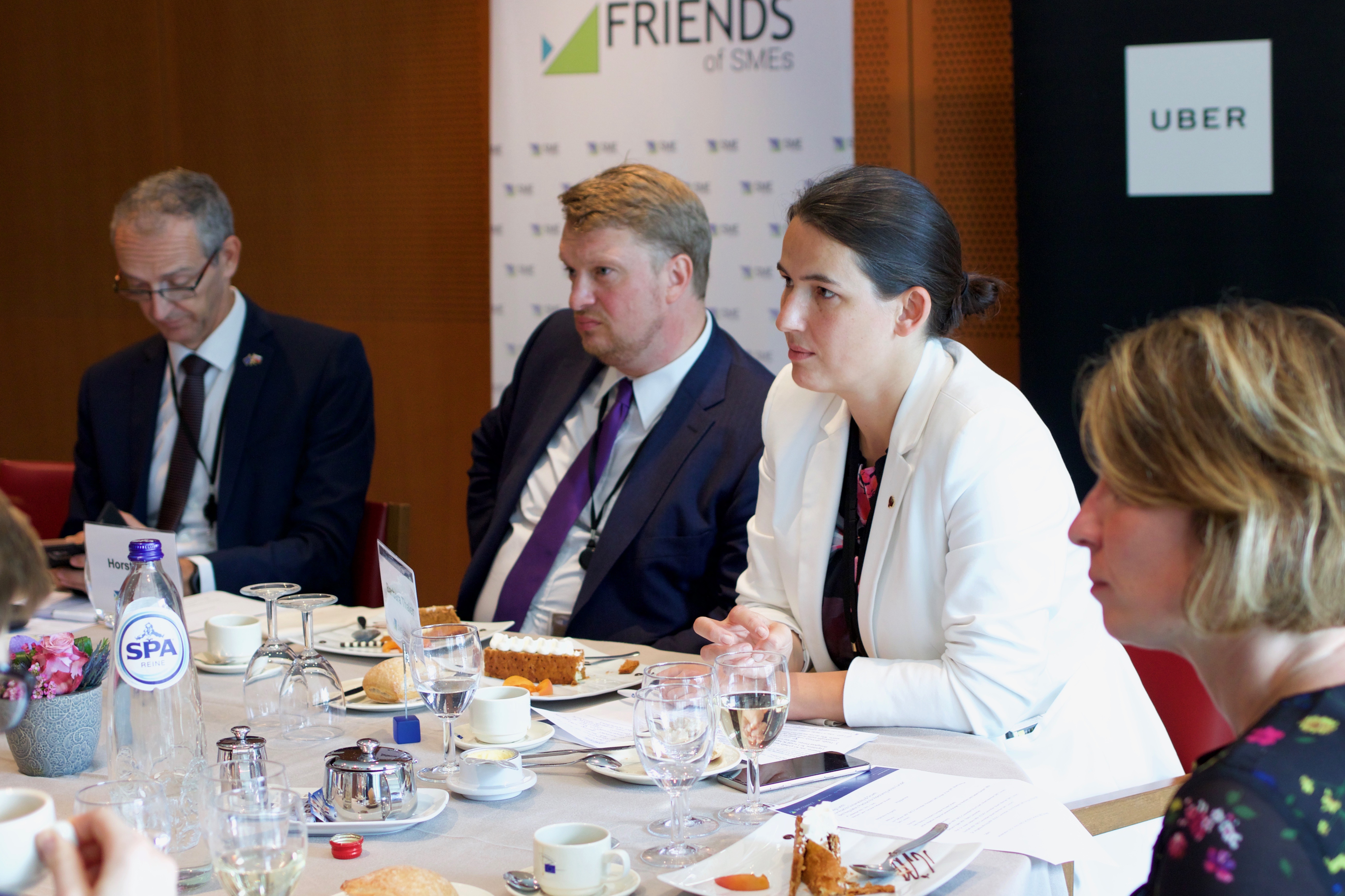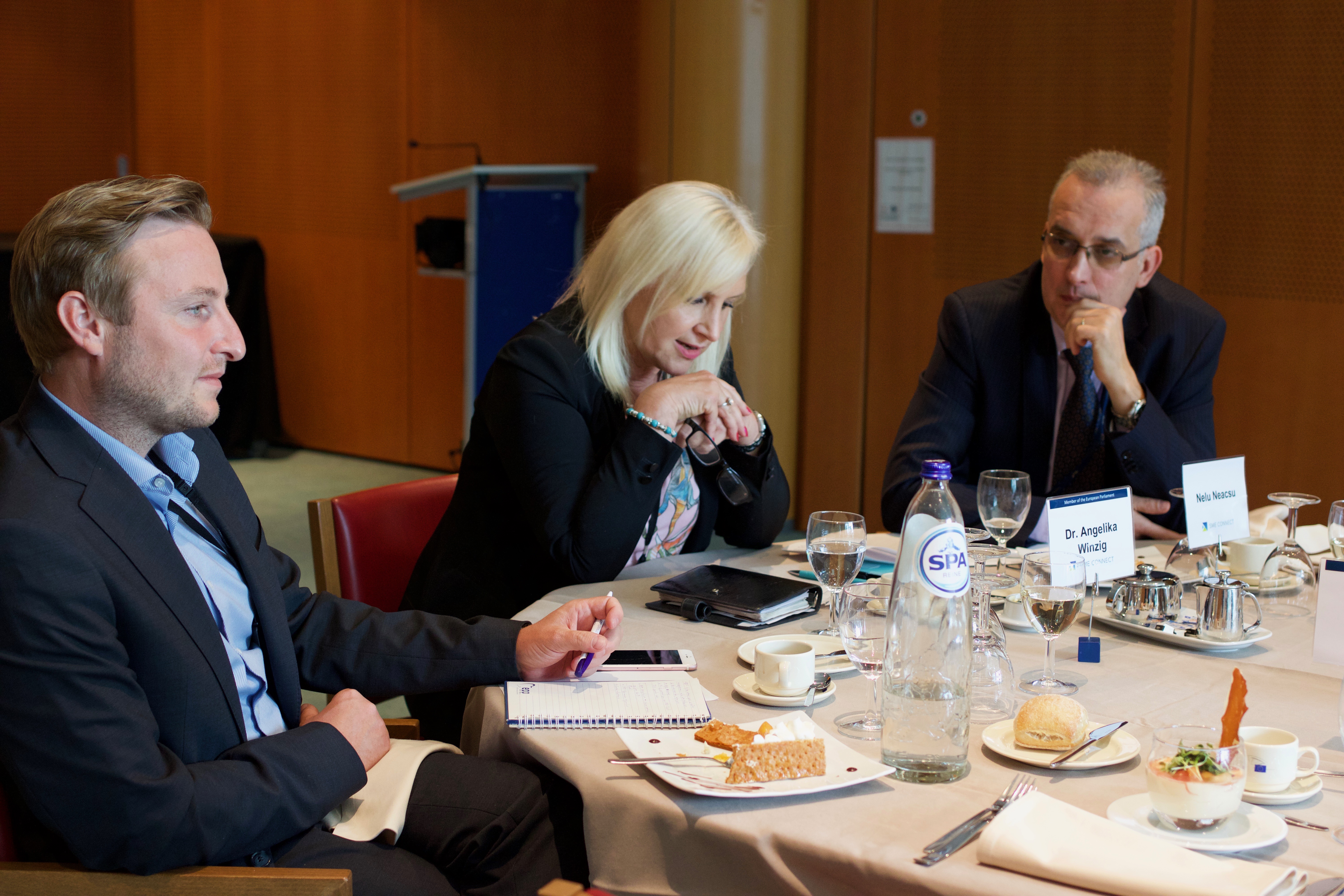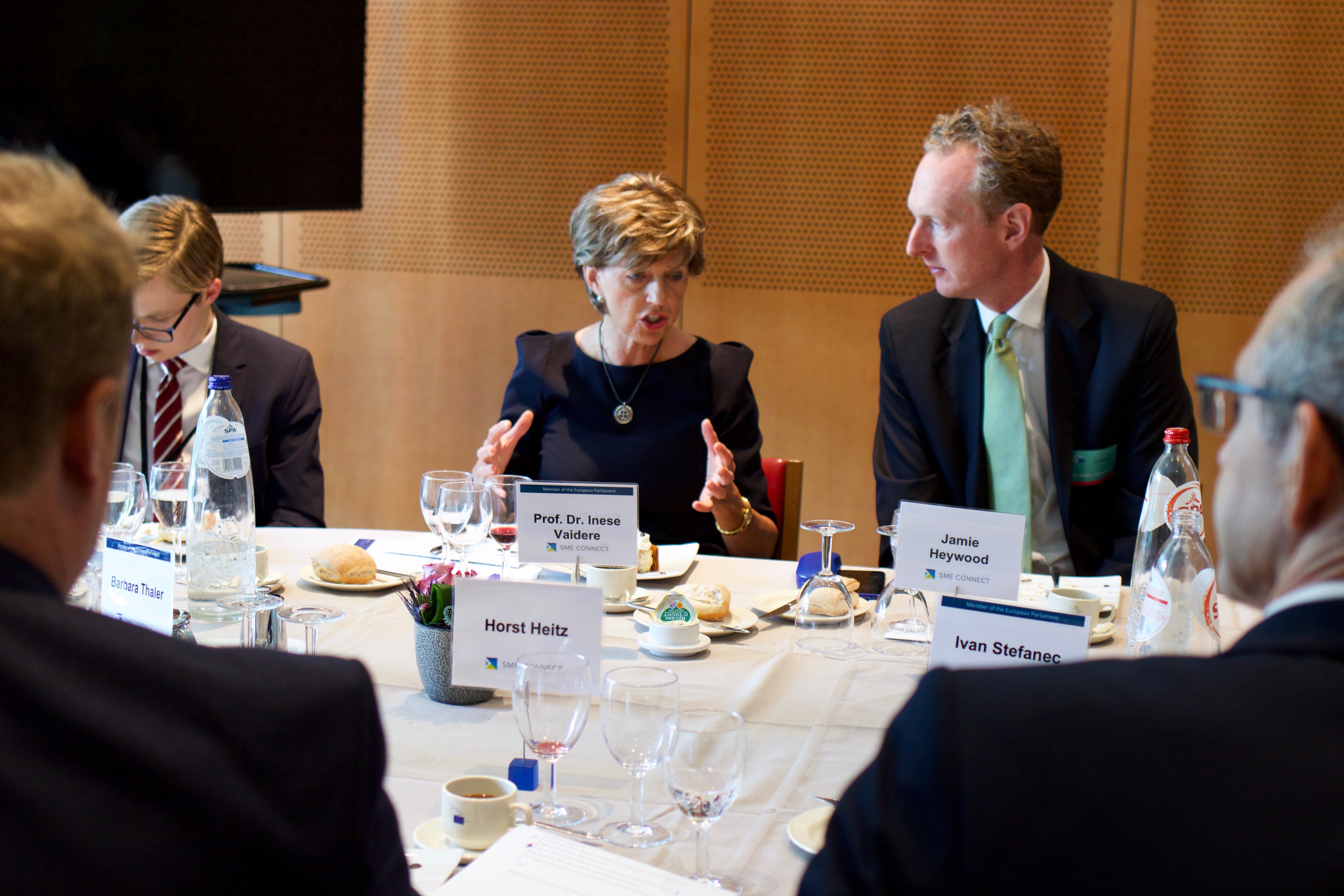The Road to Sustainability & Growth: Best Regulatory Practices for Ridesharing across Europe
The table was nicely laid out, as participants entered the Members’ Salon of the European Parliament in Brussels. On the 4thof September, SME Connect hosted a Working Lunch on the topic of mobility, more precisely speaking about ridesharing, bringing politics and businesses together.
Next to the events host Ivan Stefanec MEP (IMCO Committee, President SME Europe of the EPP, Board Member SME Connect), Dr. Horst Heitz (Secretary General, SME Connect), who took over moderation, and keynote speakers Nelu Neacsu (President, European Private Drivers) and Jamie Heywood (Regional General Manager for Northern and Eastern Europe, UBER) attended.

The keynote speakers both took a slightly different stance on projects of ridesharing, in this case especially referring to UBER, and its best regulatory practices, fuelling the possibility for a constructive discourse. And while it is hardly surprising that the topic of environment made its frequent appearance at the discussion on the round lunch table, specific experiences of numerous participants made for a realistic assessment of the current state – not only taking UBER, but different options into consideration. Resulting, the prevention of drivers working overtime was a topic of interest for Maria Grapini MEP (IMCO Committee (Vice-Chair), Board Member SME Connect), while Barbara Thaler MEP (TRAN Committee) was particularly focusing on data protection and UBERs approach for reaching more rural areas.

With Jamie Heywood giving interesting insights into the present and future of UBER, Prof.Dr. Inese Vaidere MEP (ECON Committee, Board Member SME Connect) and Dr. Angelika Winzig MEP (BUDG Committee, Vice-President SME Europe of the EPP) further used the Q&A session, to raise awareness to the subjects of taxes and potentially new innovations. Generally speaking, the Question and Answer Session gave space for mapping out possible improvements regarding ridesharing itself just as much as the regulatory practices behind it. Specific consideration was brought to the factors of sustainability and growth, which UBER has started to adapt to, as Heywood stated. He did not only mention the establishment of a “pool” function, but further explained an efficient tool to identify the best possible option of transport when going from A to B.

SME Connect was once again able to encourage communication, the most vital tool for connecting politics and businesses, through their event. And as UBER and many others, will continue making efforts to create a sustainable and future-oriented ridesharing option across Europe, politicians will simultaneously work on regulatory practices of high efficiency, as well as adaptability. With their shared focus of interest being the European citizens and their accessibility of coming from A to B safe and easy. And of course, SME Connect will continue playing a crucial role mediating in a constructive environment as provided at this Working Lunch.
